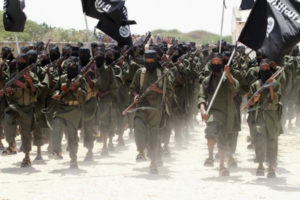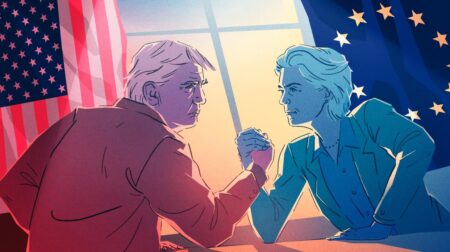
Tanzania’s Samia Suluhu reelection, she was declared winner of the national election with about 97.66% of the vote, following the disqualification of major opposition rivals, sparking protests, violence, and growing international concern over the fairness and transparency of the electoral process.
TANZANIA’S SAMIA SULUHU REELECTION: LANDSLIDE RESULT AMID OPPOSITION EXCLUSION

Tanzania’s Samia Suluhu reelection, the country’s presidential election produced a startling result, incumbent Samia Suluhu Hassan was declared the winner with a reported 97.66 % of the vote. Such an overwhelming margin is almost unheard of in a competitive multiparty democracy. The election commission certified her victory on 1 November 2025.
Read also: Tanzania Elections 2025: Opposition Exclusion Controls the Scene – What is Happening
Read also: Cameroon President Paul Biya Wins the 8th Term – Still Cameroon People Trust Him?
However, the context raises serious questions, key opposition parties were barred from participating, and the vote came after widespread protests the exclusion of serious rivals.
In her declaration speech from the administrative capital of Dodoma, Hassan defended the government’s handling of recent unrest, stating that when it comes to Tanzania’s security “there is no debate, we must use all available security avenues to ensure the country remains safe.”
SECURITY CRACKDOWN AND CIVIL UNREST

Tanzania’s Samia Suluhu reelection, the run-up to the election was marked by violent unrest and a heavy security response. Civil society and opposition sources say the exclusion of major opposition candidates triggered days of street protests across major cities. Some demonstrators reportedly set fire to government buildings and tore down campaign banners during the chaos.
Furthermore, internet and mobile social media access were restricted during and after election day, according to the monitoring organization NetBlocks. The main opposition party, Chadema, claimed its monitors found no less than 800 people killed by security forces in the unrest. The United Nations human rights office, by contrast, said credible reports indicated at least ten people were killed in three cities.
The government, through Foreign Minister Mahmoud Thabit Kombo, rejected the figures, saying no excessive force was used and that it had “no official figures” for deaths. This large gap in reported casualty numbers highlights the fractures in trust between government, opposition and international observers.
OPPOSITION BARRED AND DEMOCRATIC CONCERN

Tanzania’s Samia Suluhu reelection, much of the controversy centers on the decision to bar prominent opposition figures from the ballot. For example, opposition leader Tundu Lissu has been jailed for months on treason charges after calling for electoral reforms, charges he denies. Another opposition candidate, Luhaga Mpina of the ACT-Wazalendo party, was also prevented from running.
The Chadema spokesperson criticised the outcome as a “mockery of the democratic process,” and demanded the intervention of a credible international body to oversee a fresh election. At the same time, human rights groups accuse the government of overseeing a “wave of terror” prior to the vote, abductions, suppression of dissent and other rights violations. The government rejects this characterization.
The tension between such claims of repression and the government’s insistence that the election was “fair” creates a fraught backdrop for Hertz style legitimacy. International actors including United Nations have publicly voiced concern, UN Secretary-General António Guterres’s office said it was “deeply concerned” about reports of deaths and injuries during the demonstrations.
IMPLICATION FOR TANZANIA’S FUTURE
With Samia Suluhu Hassan now firmly declared winner and a swearing-in ceremony reportedly planned for the same day of certification, Tanzania enters a new chapter under her leadership. But the legitimacy of her mandate faces serious doubts, both domestically and internationally. The near totality of the vote she reportedly secured 97.66%, raises clear red flags in a system meant to provide competitive elections.
Tanzania’s Samia Suluhu reelection, the exclusion of major opposition actors, combined with protest-related violence and digital restrictions, suggests a narrowing of democratic space. For her government, the balance will be between maintaining stability and responding to calls for genuine pluralism. If opposition groups remain excluded, there may be ongoing tensions and potential unrest. From a regional perspective, Tanzania’s role in East Africa and its appeal to investors might hinge on perceptions of governance and rule of law.
In summary, while the headline is a decisive victory for President Hassan, the broader picture is one where democratic processes are under question—and Tanzania’s next phase of governance will be defined as much by how the victory is viewed as by the victory itself.







